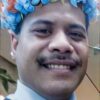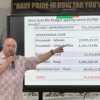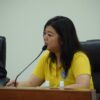ONCE again, the reputable pollsters in Manila were spot on. As early as November 2021, they had indicated that presidential candidate Ferdinand “Bongbong” Marcos Jr., or BBM, was so way ahead based on their surveys that his lead could be insurmountable. And so it was.
In any case, it now appears that the folks most rattled by the Philippine election result are the foreign media. They are either mystified or horrified — or both — by BBM’s landslide victory. They also refer to Bongbong as “the son of a dictator.” Which is shorthand for: Marcos Sr., world-record corruption, Swiss bank accounts, Imelda and her shoes, human rights abuses.
Marcos Sr. did rule as a dictator, but he was a duly elected president. In 1965, he beat the then-incumbent president, Diosdado Macapagal, the father of the 14th president, Gloria Macapagal Arroyo, one of Bongbong’s major supporters. In 1969, Marcos Sr. became the first Philippine president to be re-elected since the original Filipino “strongman,” Manuel L. Quezon, won a second term in 1941 with over 81% of the votes cast. MLQ’s opponent, Sen. Juan Marquez Sumulong, was the grandfather of the 11th president, Cory Aquino, and the great-grandfather of the 15th, Benigno “Noynoy” Aquino III.
In September 1972, more than a year before the end of his second and, under the constitution, final term, Marcos Sr. declared martial law. He jailed his political opponents, padlocked Congress and took over the media. In a two-day referendum held in 1973, 90% of the voters “approved” his martial law regime and ratified a new constitution that further legitimized his one-man rule. His political opponents questioned the validity of the result, but as the New York Times reported at that time: “[A] large proportion of Filipinos accept the peace, stability, improved government efficiency and economic progress brought about under President Marcos’s authoritarian control as better than the turbulent, corrupt rule that prevailed a year ago when he headed an elected government.”
In 1975, the Philippine Supreme Court upheld his one-man rule, saying that Marcos Sr. was president by law. In 1981, in an election boycotted by the opposition, he was elected president of his “New Republic” with over 80% of the votes cast.
As all these historical facts show, reality, even in the Philippines, is not always as simple as it appears to be.
Marcos Sr. ruled by decree from 1972 until 1986 when he was ousted in a military-backed popular uprising amid a raging Maoist insurgency and an economy in shambles. There was an election held early that year which he officially won, garnering 53% of the votes cast. But according to an international observer delegation, which included U.S. experts on election procedures, the “election…was not conducted in a free and fair manner.” In Washington, D.C., U.S. Sen. Richard Lugar, the Indiana Republican who chaired the Foreign Relations Committee, said: “Somebody is trying to manage the outcome of this election. That disturbs me.”
Since his father’s humiliating removal from office and their family’s exile to Hawaii, Bongbong and his mother had loudly complained about the unfairness of it all. When they were finally allowed to return to the Philippines in 1991, Bongbong sought elected office in his family’s home province and won a House seat. Four years later, he ran for the Senate whose members were elected nationwide. There were 12 winners. He finished 16th. In 1998, he was elected governor of his home province and served for three terms before successfully running for the House again. In 2010, he finally won a seat in the Senate. (He placed seventh among the 12 winning candidates.) Six years later, he narrowly lost the vice presidential election. On Tuesday, Bongbong became the first Philippine presidential candidate to garner a majority of the votes cast since 1986.
Several days before the May 9th election, Bongbong said his father was a “political genius.” That he was — until he wasn’t. Unlike his father who was already an acknowledged political star even in college, Bongbong was saddled with a seemingly toxic if not fatal political legacy. (He also lied about obtaining a degree from Oxford.) Many years ago, I believed that if a Marcos “restoration” would happen in the distant future, it would be led by one of Marcos Sr.’s glamorous and telegenic grandchildren. Six years ago, moreover, some said that Bongbong was already a political dinosaur. But in this election season, he competently managed a sophisticated, disciplined campaign based on the most banal of political banalities that appealed to over 31 million voters — young and old, rich and poor, regardless of educational background.
On June 30, he will be sworn in as the Philippines’ 17th president with a huge and unmistakable mandate.
In his 1980 book “The Return of Eva Peron,” V.S. Naipaul wrote that the highly imaginative fictionist Jorge Luis Borges of Argentina had admitted that he could not concoct a story like that of his nation’s dictator, Juan Peron, and his astonishing political comeback 17 years after he was overthrown. Suddenly, Naipaul said, “nearly everyone [in Argentina] is Peronist. Not only the workers on whom in the early days Peron showered largesse, but Marxists and even the middle-class young, whose parents remember Peron as a tyrant, torturer and thief.”
It took the Marcoses 36 years to return to the presidential palace in Manila. But they’re back at last. And now, there are two other Marcoses who could be future presidents: 1) Bongbong’s 28-year-old son Sandro, a newly elected House member, who was born in England and has a master of science degree from the London School of Economics and Political Science; and 2) Matthew Marcos Manotoc, the 33-year-old governor of his family’s home province, Ilocos Norte. Born in Morocco, he is the youngest son of Bongbong’s sister, Sen. Imee Marcos. Matthew has a bachelor’s degree in psychology from Claremont McKenna College in California.
Democracy, to paraphrase Winston Churchill, is the worst form of government — except for all the others.
Send feedback to editor@mvariety.com

Ferdinand “Bonbong” Marcos, right, with his son Sandro.











